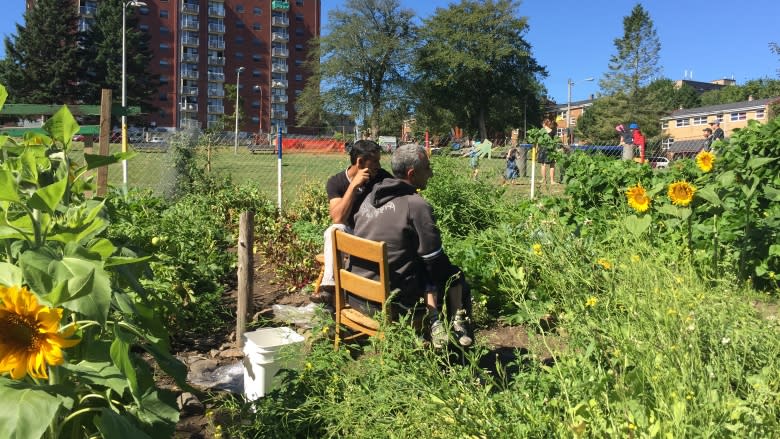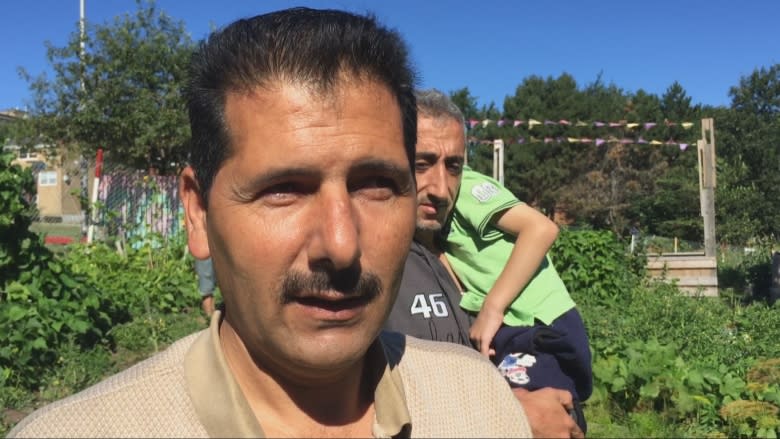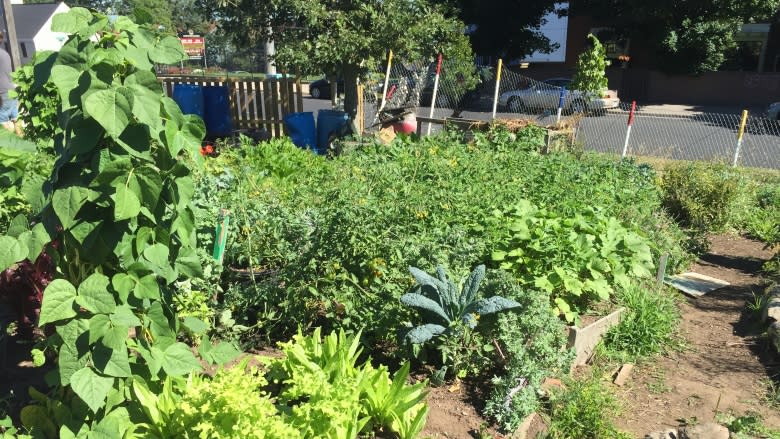Hope Blooms shares garden plots with new neighbours from Syria
Hope Blooms is living up to its name, giving its Syrian neighbours a stake in their new homeland.
The north-end community garden and salad dressing business, conceived and run by youth from the Gottingen Street area of Halifax, has drawn refugee families into its fold.
When members noticed that Syrians who live in a building across from the garden plots seemed interested in their work, they reached out to the newcomers.
"Hope Blooms is a community that's perceived to be impoverished [but] the will to give, the generosity is still there," said Alvero Wiggins, a youth leader with Hope Blooms.
Left a 40-hectare farm in Syria
Majed Al Zamer, who moved to Halifax in February, misses his farm in Syria.
"I had a farm of 40 hectares. And I would plant all kinds of vegetables and fruit," he said through a translator.
This spring he noticed the garden plots along Brunswick Street across the street from where he and his family now live.
The Hope Blooms fund buys seeds and tools so people in the neighbourhood can also grow food. When some people in the community heard about their new neighbours' interest in the gardens, they volunteered to give up their own plots to allow the Syrians to work the earth.
"I was very happy that I found something I did in the past. Although it's small, it reminds me of my big farm," Al Zamel says.
New evolution for garden
It's all about spreading hope, Wiggins says and "what is awesome about this new evolution of the garden."
Now the Syrians come every day for two to three hours to water, weed or just sit in the gardens, most of the time with their children.
"Since I was very small, I would go with my father to work," said 14-year-old Mohammed Al Zamel. "We grew up like this."
The Syrians still have limited English and the services of a translator are limited as well.
Both sides use sign language and language apps on cell phones to communicate and that seems to be working pretty well, says Bocar Wade, another Hope Blooms youth leader.
Language of the earth
"We believe gardening is a universal language," he said. "A translator would be a lot better, but we do a lot with what we have."
The Syrians have even asked if winter gardening would be possible. That would involve creating some temporary greenhouses and some extra fundraising, something that is being considered.
Hope Blooms, which started in 2007, planned to build its original greenhouse with a $40,000 investment from the CBC reality show Dragons' Den. In the end, Build Right Nova Scotia constructed a new, state-of-the-art greenhouse for the youth-run company.
Profits from the group's salad dressing sales go toward scholarships for young people.










